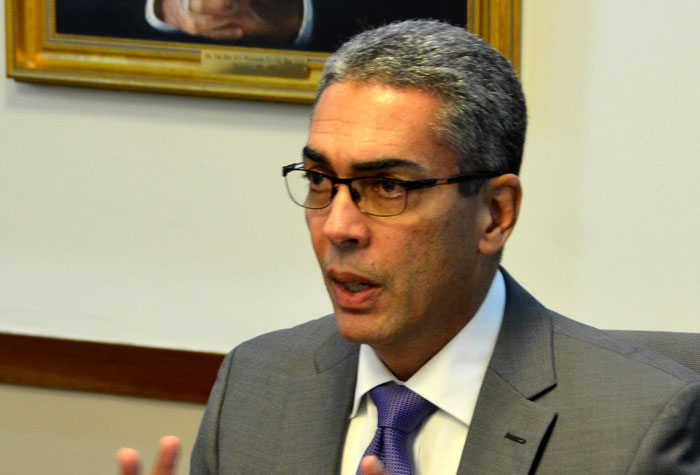EPOC Co-Chair Confident of Positive Seventh Quarter Assessment by IMF
By: , February 7, 2015The Key Point:
The Facts
- This, he says, is based on the country meeting IMF targets for two of the key performance criteria, the primary surplus and net international reserves (NIR) for the period between April and December of fiscal year 2014/15.
- Mr. Byles said the cumulative primary surplus for the period came out at $66.6 billion, to exceed the $66 billion target.
The Full Story
Co-Chair, Economic Programme Oversight Committee (EPOC), Richard Byles, is expressing confidence that Jamaica will get a positive seventh quarter assessment from the International Monetary Fund (IMF), when it conducts its review for the October to December period.
This, he says, is based on the country meeting IMF targets for two of the key performance criteria, the primary surplus and net international reserves (NIR) for the period between April and December of fiscal year 2014/15.
Speaking at EPOC’s monthly media briefing in New Kingston on February 5,
Mr. Byles said the cumulative primary surplus for the period came out at $66.6 billion, to exceed the $66 billion target.
While noting that revenue inflows declined by $9.7 billion, due to shortfalls, particularly in December, on corporate tax and general consumption tax (GCT), down $6.6 billion and $6.7 billion, respectively, Mr. Byles said inflows from PAYE and tax on interest continued to exceed budgeted targets.
“The PAYE is above target by $2 billion, and that trend, we saw from earlier in the year. The tax on interest also is above target (by) $1.5 billion. The March quarter is when most, if not all, corporations have to lodge their tax returns. So, we look forward, with expectation, at what that tax number will be,” the EPOC Co-Chair said.
He advised that the Ministry of Finance and Planning has agreed to EPOC’s request to ask Tax Administration Jamaica (TAJ) to attend the next EPOC meeting in March, “to speak about their efforts at tax compliance.”
Regarding public expenditure to date, Mr. Byles said these remain below the
$15.2 billion budget, despite a $2.4 billion over-expenditure in December.
“(This), it was explained to us, had to do with the health sector reclassification programme, which is in its third year. So, payments were made in December on that programme,” he noted.
As it relates to the NIR, Mr. Byles said this was at US$2 billion at the end of December 2014 pointed out that this is “considerably above the US$1.26 billion that was the target.”
On other matters, Mr. Byles informed that net remittance inflows between January and October 2014, totalled approximately US$1.6 billion.
This, he pointed out, represented a US$90.4 million or six per cent increase over the corresponding period in 2013, and the largest inflow reported by the Bank of Jamaica since 2011.
Additionally, he said the trade deficit between January and October 2014, narrowed by US$143 million, or 3.8 per cent, to reach US$3.58 billion, down from US$3.72 billion the previous year.
Data provided showed that merchandise imports fell by US$250 million or 4.9 per cent, to US$4.8 billion in 2014, compared to 2013. Additionally, export earnings fell by US$106 million or eight per cent, to US$1.22 billion.
Other key areas highlighted by Mr. Byles included: increased cruise ship and stop- over visitor arrivals, up 12.5 and 3.6 per cent, respectively, for the calendar year; 2014 calendar year end inflation of 6.4 per cent, with the 2014/15 fiscal year-to-date figure between April and December, coming out at 4.6 per cent; and an increase of 14,000 in the number of persons employed, as at October 2014, compared to 2013, as reported by the Statistical Institute of Jamaica (STATIN).
“I think that the economy is recovering and growing stronger. (In that regard) I would say we are pleased with the performance of the economy, thus far,” Mr. Byles said.




